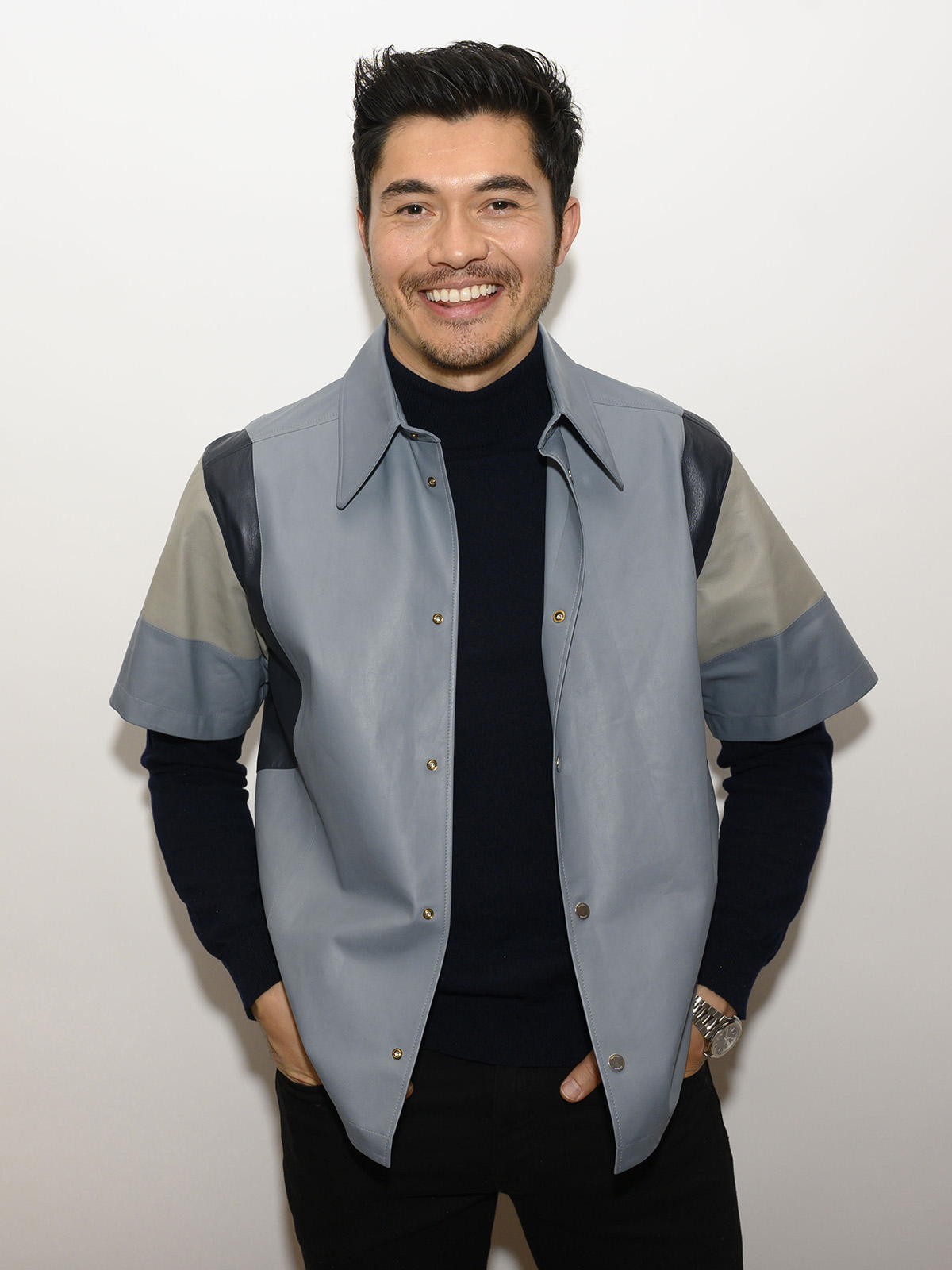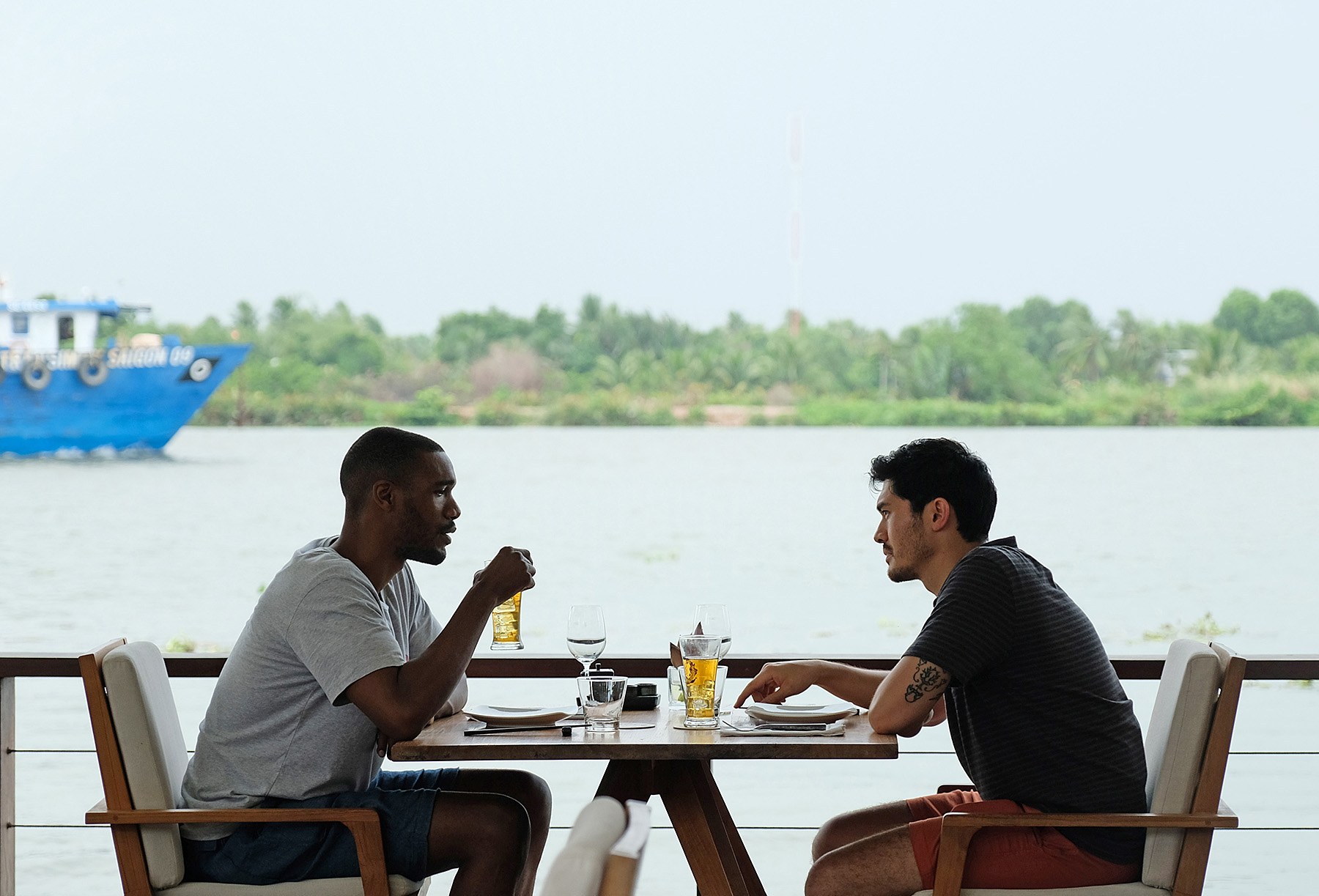
- Interviews
Henry Golding: ‘I always wanted to understand more about my heritages’
Henry Golding, a TV travel journalist, was picked by director John Chu to play the leading role of the wealthy groom from Singapore in the ensemble comedy Crazy Rich Asians (2018) with Constance Wu, Michelle Yeoh and Awkwafina. Golding then chose the drama Monsoon (2020) as his second feature, to play Kit, a man raised in England returning to Vietnam, the country where he was born and that his parents fled when he was 6-years-old. The actor identified with Kit because he was raised in East Malaysia, where his mother is from, then moved to the UK at age 8, his father being British. More acting roles followed, two comedies directed by Paul Feig, A Simple Favor (2018) with Anna Kendrick and Blake Lively, Last Christmas (2019) with Emilia Clark and Emma Thompson, and the gangster movie The Gentlemen (2020) directed by Guy Ritchie with Matthew McConaughey and Hugh Grant. His next movie is Snake Eyes (2021), a prequel to the G.I. Joe film series. We spoke with the charming actor via Zoom from his home in Los Angeles, where he moved this year with his Taiwanese wife Liv.
What made you chose the role of Kit in Monsoon, right after completing your first film, Crazy Rich Asians?
I just loved the character and the story, because Monsoon is about Kit’s yearning to understand his family’s past and his history, which leads him to Vietnam. So it really is a search for one’s identity. And I had been to Vietnam a few times before, as a travel journalist, but I had never visited Hanoi, so to be able to spend three months in Vietnam was a dream come true.

Lewis (Parker Sawyers) and Kit (Henry Golding) in Monsoon (2019)
Đạt Vũ
Kit starts a relationship with an African-American man, a clothes designer living in Saigon. What do they have in common?
They are both in Vietnam for a purpose. Lewis is trying to give back to the Vietnamese people, to make amends for his father’s wrong choices during the American war. So I see the three characters that Kit meets, Lewis as being the present, his cousin Lee as being the past and the young girl Linh as being the future. When Lewis and Kit get together, they find an affinity with one another, and what started off as a fling, once they take down their walls, actually blossoms into a very tender and connected relationship, which is lovely to see.
The story of Monsoon is autobiographical for writer/director Hong Khaou, who’s from Cambodia but spent time as a child in Vietnam before emigrating to the UK. How did this resonate with you, given your family’s history?
My mum was from Sarawak, in Malaysian Borneo, and my dad is British, so I was born in East Malaysia but grew up for most of my life in Surrey, just south of London. Then I decided on my own, when I was 21, to go back to Malaysia to follow my dream of getting into broadcast television. As a young man, I always wanted to understand more about both my heritages, so when I went back to Malaysia I had the same kind of experience as Kit, of feeling alienated in a country that is meant to be your motherland. Are you British because you grew up in the UK or are you Vietnamese because you were born there? But if you don’t identify as either, where do you belong?
Before your 2016 marriage in Sarawak, Malaysia, you completed a tribal rite of passage, that you documented in the TV show Surviving Borneo.
Yes, it’s called the bejalai, which is a spiritual journey into manhood. Traditionally within my tribe, the Iban, you would go and spend an amount of time surviving in the jungle, during which you become the man that you’re meant to be. So I did a two-month journey into the jungle with three different tribes in total, and that was probably one of the greatest experiences I’ve ever had.
You lived for a long time in Singapore, where you shot Crazy Rich Asians: what did you discover about the different ethnicities of South East Asia?
Southeast Asia is fascinating because you have Thailand, Indonesia, Vietnam, and the Philippines, so there are many different influences. In Singapore, you have Malays, Chinese, Indians and everything in between, so it’s one of those places that really is a true melting pot of cultures. The food is probably the best window into that, with all the inspiration from each culture. Malaysian food is one of my favorites and so is Singaporean.
Your wife Liv is Chinese from Taiwan: what did you learn about her culture that you have come to appreciate?
We spent lots of time with her parents where she grew up, in Tainan, just south of Taipei, which is a big city, but in terms of Taiwan, it’s quite a rural area. I found that the Taiwanese are so much softer than the mainland Chinese, I think because they had a lot more freedom, but also because their culture is very different. They have the same kind of respect for family and filial thoughts, but they are super-friendly people. So I treasure every time that we get to go to Taiwan.
Your wife worked in Tokyo and you visited her often, then you shot part of Snake Eyes in Japan. What do you like about Japanese culture?
Japan is definitely one of my favorite countries. I’ve been there many times because I did a travel show all around Japan, but I also spent time with Liv when she was living there, and then I filmed Snake Eyes near Tokyo this year. I find that the Japanese people are so friendly, very civilized, and their society is very kind, plus they have some traditional cultural practices and I love that because they have a very strong sense of identity.
You have had many multicultural influences, so in what sense are you British as well as Asian?
I think my sentimentality is very British, my comedy or sense of humor is much more British, my cultural references are definitely British, so I will always be an English boy at heart, but I also have a very strong sense of my Asian roots.
You said that Paul Feig suggested you play the ambiguous husband in A Simple Favor like Cary Grant in Hitchcock’s movie Suspicion.
Yes, that’s right. I love Paul dearly; he’s become one of my closest confidants here in L.A.
How do you feel about being seen as the most prominent Asian leading man in movies today?
It’s fantastic for me to have become a representative for Asian men, to have pushed the envelope. I’m glad we’re able to fly that flag, and hopefully, we will be in bigger and better movies.
Who are the actors whose careers you most admire?
I like Matthew McConaughey, Joaquin Phoenix is doing amazing work, and I love Robert Pattinson’s choices. There’re so many admirable actors that I derive inspiration from everybody, really, and it’s fantastic that way.
You moved to Los Angeles a few months ago: why did you do that and what do you like about living here?
Moving to Los Angeles afforded us to be able to travel throughout California, and have a car, which we never had in Singapore because it was such a small country. So Liv and I spend time with our friends, we thoroughly enjoy the weather here, and we love living that American West Coast dream.
What are some of the issues that concern you about the world today?
We have always been strong environmentalists, me, coming from a culture like Borneo that really relies upon nature and the jungle, and my wife being very outspoken about climate change. So we are doing what we can: we are doing our part, but it’s continuous work, there’s never an end to that.

